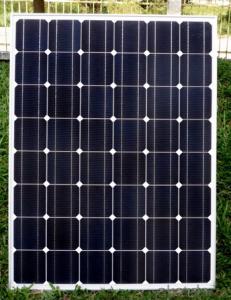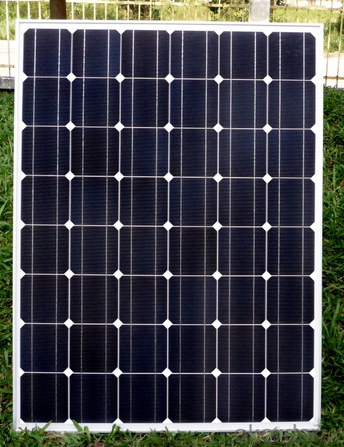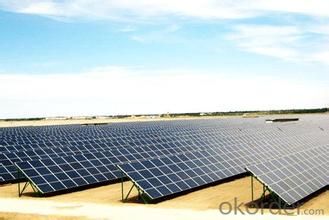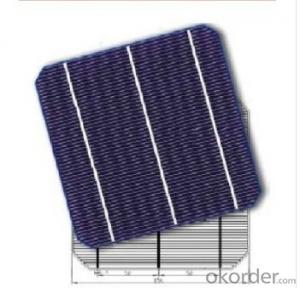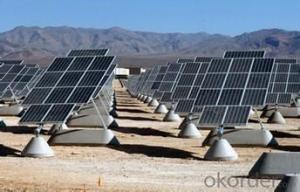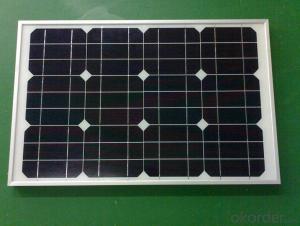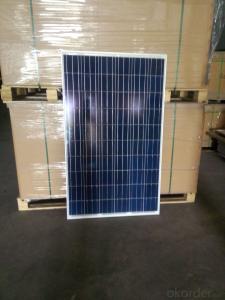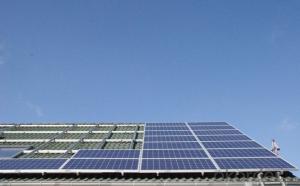25kW Solar Energy Systems for Boats with 25 Years Quality Assurance
- Loading Port:
- Shanghai
- Payment Terms:
- TT OR LC
- Min Order Qty:
- 1 pc
- Supply Capability:
- 100 pc/month
OKorder Service Pledge
OKorder Financial Service
You Might Also Like
Specification
25KW Solar Home Solution with 25 years Qualtiy Assurance
Production description
PV systems range from small, rooftop-mounted orbuilding-integrated systems with capacities from a few to several tens of kilowatts, to large utility-scale power stations of hundreds of megawatts. Nowadays, most PV systems are grid-connected, while off-grid or stand-alone systems only account for a small portion of the market.
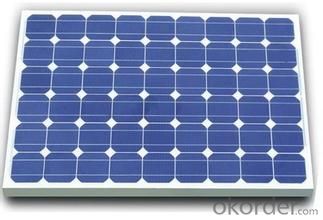
Feature
1.High conversion efficiencies resulting in superior power output performance.
2.Outstanding power output even in low light or high temperature conditions
3.Optimized design for ease of soldering and lamination
4.Long-term stability,reliability and performance
5.Low breakage rate
6.Color uniformaity
Physical characteristic
1. Rigorous quality control meets the highest international standards.
2. High-transmissivity low-iron tempered glass, strong aluminium frame.
3. Using UV-resistant silicon.
4. IS09001/14001/CE/TUV/UL
- Q: Can solar energy systems be used for powering schools?
- Yes, solar energy systems can be used for powering schools. In fact, many schools around the world are now embracing solar power to meet their energy needs. Solar panels can be installed on rooftops or in open areas within school premises to generate clean and renewable electricity. This not only reduces the school's carbon footprint but also helps save on electricity costs in the long run. Additionally, solar energy systems can also be educational tools, allowing students to learn about and engage with sustainable energy practices.
- Q: What happens to excess energy generated by a solar energy system?
- Excess energy generated by a solar energy system can be stored or sold back to the grid. When a solar energy system produces more electricity than is being consumed, the excess energy can be stored in batteries for later use. This stored energy can be utilized during times when the solar panels are not generating enough electricity, such as during nighttime or cloudy days. Alternatively, if the solar energy system is connected to the electrical grid, the excess energy can be fed back into the grid. This process is known as net metering. In net metering arrangements, the excess energy is fed into the grid, and the owner of the solar system receives credit for the electricity they provide. This credit can then be used to offset the electricity consumed from the grid when the solar panels are not generating enough power. By either storing excess energy or selling it back to the grid, solar energy systems ensure that no energy goes to waste. This not only maximizes the efficiency and utilization of solar power but also allows solar energy system owners to benefit financially from their excess generation.
- Q: How do solar energy systems impact the stability of the electricity grid?
- Solar energy systems can have both positive and negative impacts on the stability of the electricity grid. On one hand, they can enhance grid stability by diversifying the energy sources and reducing reliance on fossil fuels. Solar energy is a renewable resource that can be harnessed locally, which can help in reducing transmission losses and increasing grid resilience. On the other hand, the intermittent nature of solar power can pose challenges to grid stability. Fluctuations in solar generation due to weather conditions can require grid operators to manage the variability through energy storage or flexible backup power sources. Overall, the impact of solar energy systems on grid stability depends on effective integration and coordination with existing power infrastructure.
- Q: What is the role of power optimizers in solar energy systems?
- Power optimizers in solar energy systems play a crucial role in maximizing the efficiency and performance of the system. They are responsible for individually optimizing the power output of each solar panel, allowing them to operate at their maximum potential, despite shading or other performance limitations. By continuously monitoring and adjusting the output of each panel, power optimizers help to improve the overall energy yield, increase system reliability, and enhance the overall return on investment for solar installations.
- Q: Can solar energy systems be used in areas with limited access to food?
- Yes, solar energy systems can be used in areas with limited access to food. Solar energy systems can power various agricultural technologies such as irrigation systems, greenhouses, and hydroponic systems, which can help improve food production in these areas. Additionally, solar energy can also be used to power refrigeration and storage systems, allowing for better preservation of food and reducing post-harvest losses.
- Q: Can solar energy systems be installed on airports or transportation hubs?
- Yes, solar energy systems can definitely be installed on airports or transportation hubs. In fact, airports and transportation hubs are ideal locations for installing solar panels due to their vast open spaces and availability of sunlight. Installing solar energy systems in these areas can significantly reduce their carbon footprint, lower energy costs, and promote sustainability in the transportation sector. Additionally, airports and transportation hubs usually have large rooftops and parking areas that can accommodate solar panels, making them suitable locations for generating clean and renewable energy.
- Q: Can a solar energy system be installed on a green roof?
- Installing a solar energy system on a green roof is indeed possible. Combining solar panels with a green roof offers several advantages. A green roof provides insulation, reduces stormwater runoff, and helps counter the urban heat island effect. When solar panels are installed on a green roof, they can benefit from the cooling effect of the vegetation, resulting in enhanced energy production and efficiency. Furthermore, the green roof can provide shade to the solar panels, reducing the risk of overheating and prolonging their lifespan. It is crucial to ensure that the roof's structural integrity can support both the weight of the green roof and the solar panels. Proper installation and maintenance are essential for the system's success and longevity.
- Q: Can solar energy systems be used for powering electric vehicle carpooling services?
- Yes, solar energy systems can be used to power electric vehicle carpooling services. Solar panels can be installed on carports or rooftops to generate electricity, which can then be used to charge electric vehicles used for carpooling. This sustainable approach helps reduce carbon emissions and dependence on fossil fuels for transportation.
- Q: Can solar energy systems be installed in areas with extreme weather conditions?
- Yes, solar energy systems can be installed in areas with extreme weather conditions. While extreme weather conditions such as extreme heat, cold, wind, or snow can potentially affect the performance of solar energy systems, modern solar technology has been designed to withstand these conditions. Solar panels are made from durable materials that can handle high temperatures, freezing temperatures, and strong winds. Additionally, solar panels are often tested and certified to meet specific industry standards for durability and performance in different weather conditions. In areas with extreme heat, solar panels are designed to dissipate heat and maintain their efficiency. They are also tested to ensure that they can withstand the high temperatures without any damage or significant loss in performance. In areas with extreme cold, solar panels are built to withstand freezing temperatures and can even generate electricity in snowy conditions. Some solar panels are designed with anti-reflective coatings to absorb more sunlight and melt snow faster. Furthermore, solar energy systems are often installed with proper mounting systems and structures that can withstand strong winds or storms. These systems are engineered to ensure that the solar panels remain securely attached to roofs or ground mounts even in areas prone to hurricanes or high winds. While extreme weather conditions can impact the performance of solar energy systems to some extent, with proper installation and design, solar panels can still generate electricity and provide a reliable source of renewable energy in areas with extreme weather conditions. It is important to consult with experienced solar installers or engineers who can assess the specific weather conditions of an area and design a solar energy system that can withstand those conditions.
- Q: Can solar energy systems be used in areas with limited access to maintenance services?
- Yes, solar energy systems can be used in areas with limited access to maintenance services. Solar panels are relatively low-maintenance and durable, requiring minimal upkeep. They do not have moving parts that can wear out, and regular cleaning is often the only maintenance required. Additionally, advancements in technology have made solar systems more reliable and efficient, reducing the need for frequent maintenance.
Send your message to us
25kW Solar Energy Systems for Boats with 25 Years Quality Assurance
- Loading Port:
- Shanghai
- Payment Terms:
- TT OR LC
- Min Order Qty:
- 1 pc
- Supply Capability:
- 100 pc/month
OKorder Service Pledge
OKorder Financial Service
Similar products
Hot products
Hot Searches
Related keywords
